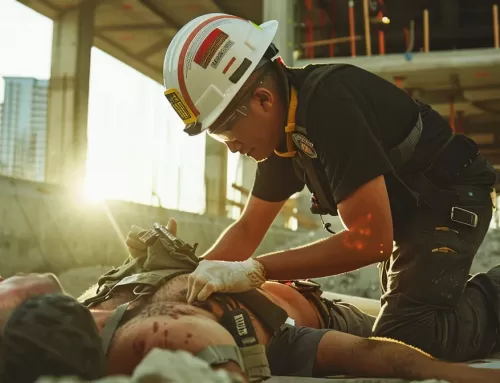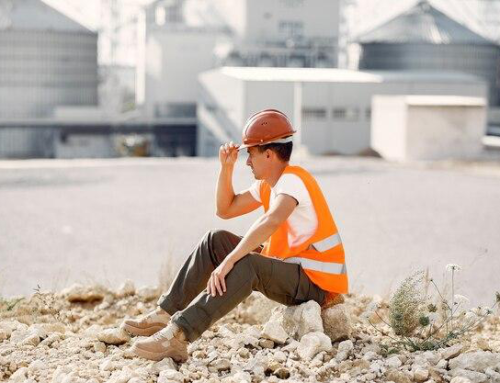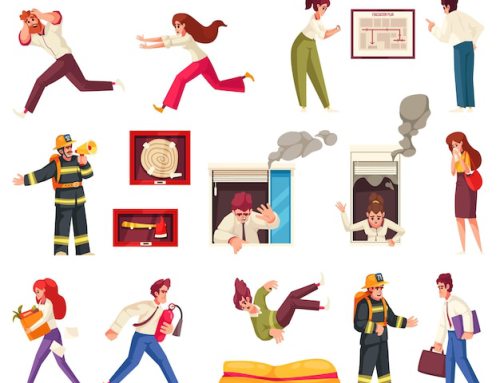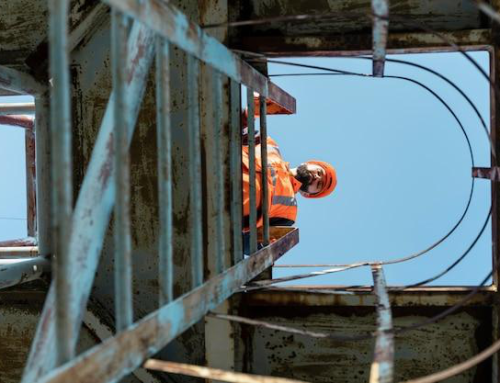In the bustling world of commercial window cleaning, safety is paramount. Window cleaners around the globe, face unique challenges working at heights and require a combination of reliable tools and standardized procedures to warrant their well-being.
In this blog, we delve into the essential safety tools and SOPs that Metro Safety Training advocates for, promoting a culture of safety within the window cleaning industry for better fall protection.
Safety Tools
- Safety Harness and Lanyard:The backbone of window cleaning safety, a properly fitted safety harness and lanyard prevent falls and offer security when working at elevated heights.
- Bosun’s Chair:The Bosun’s chair is a reliable tool for window cleaners working on suspended scaffolding, providing a comfortable and secure seat.
- Suspended Scaffolding:Specially designed scaffolding systems offer a stable platform for vertical access, allowing window cleaners to reach towering heights safely.
- Window Cleaning Belts:Equipping cleaners with belts allows easy access to essential tools, enhancing efficiency and safety during window cleaning operations.
- Safety Helmets:Safety helmets are a fundamental tool to safeguard window cleaners’ heads, protecting against falling objects or accidental collisions.
- Safety Glasses:Shield eyes from splashes, debris, and cleaning solutions; safety glasses make sure there’s a clear vision and eye safety during window cleaning tasks.
- Gloves:Providing a firm grip and protection against chemicals, rough surfaces, and sharp objects; gloves are crucial for hand safety.
- High-Visibility Clothing:Enhancing visibility, especially in high-traffic areas or low-light conditions, high-visibility clothing makes certain that window cleaners are easily spotted.
- Personal Fall Arrest System (PFAS):An integral tool for fall protection, the PFAS minimizes the impact of potential accidents, offering an additional layer of protection.
- Non-Slip Shoes:Non-slip shoes reduce the risk of slips and falls by providing stable footing on wet or slippery surfaces.
- Communication Devices:Establishing clear communication protocols through radios or signals fosters a safer working environment, particularly in noisy conditions.
- Weather Monitoring Equipment:Continuous monitoring of changing weather conditions is crucial to avoid window cleaning during adverse weather, preventing accidents.
- Safety Nets:Deploying safety nets to catch falling objects and debris protects those below, adding an extra layer of safety during cleaning.
- Emergency Lighting:Installing backup lighting systems for emergencies or low-light conditions during evening cleaning helps with visibility and safety.
Standard Operating Procedures (SOPs):
- Pre-Task Inspection:Conduct a thorough pre-task inspection to identify and address potential hazards or concerns before initiating any window cleaning task.
- Harness Fitting:Guarantee proper fitting and adjustment of safety harnesses to secure a comfortable and secure fit, minimizing risks associated with working at heights.
- Ladder Safety:Adhere strictly to safety guidelines when utilizing ladders, making sure of proper setup, maintaining three-point contact, and securing the ladder.
- Tool Handling:Proficiently handle cleaning tools to prevent accidents and minimize the risk of damaging glass surfaces, emphasizing even pressure application.
- Emergency Evacuation Plan:Develop a well-communicated and comprehensive emergency evacuation plan, conducting regular drills and designating assembly points.
- Communication Protocols:Establish clear communication protocols to coordinate tasks efficiently and convey essential safety information among team members.
- Weather Monitoring:Continuously monitor changing weather conditions to avoid window cleaning activities during adverse weather, suspending operations promptly.
- Chemical Handling:Safely handling and storing cleaning chemicals, providing proper training, adhering to recommended dilution ratios, and using appropriate PPE.
- Lift Operation:Adhere strictly to operating procedures when utilizing lifts or platforms, make sure of proper training, pre-use checks, and adherence to weight capacity guidelines.
- Anchor Point Setup:Recheck the secure setup of anchor points for safety harness attachment, conducting regular inspections and adhering to manufacturer guidelines.
- Suspended Scaffolding Setup:Properly set up and secure suspended scaffolding systems, following manufacturer instructions, conducting pre-use inspections, and making certain that all components are in good condition.
- Rope Descender Operation:Train window cleaners in the proper operation of rope descender devices for controlled descents, emphasizing the usage of certified devices and regular inspections.
- First Aid Response:Establish clear procedures for providing first aid in case of injuries or medical emergencies during window cleaning tasks, making sure that there’s a well-equipped first aid kit is kept on-site.
- Safety Net Implementation:Deploy safety nets correctly to catch falling objects and debris, and be certain of correct installation, regular inspections, and compliance with safety standards.
- Tool Inspection and Maintenance:Regularly inspect and maintain all window cleaning tools to offer optimal functionality, promptly replacing damaged tools and maintaining a maintenance log.
- Fall Protection Training:Despite all the best efforts to prevent a fall during window cleaning, accidents can happen. Therefore, it’s essential to invest in fall protection training, making certain that in case of an unforeseen situation, window cleaners can protect themselves.
Why Invest in Fall Protection Training?
Here are some reasons why you must invest in fall protection training for commercial window cleaners.
Preventing Falls
Fall protection training is crucial for commercial window cleaners as it provides essential skills and knowledge to prevent falls. Operating at considerable heights, window cleaners face inherent risks, and proper training makes sure that they understand the principles of fall prevention, use of safety equipment, and adherence to safety protocols. This knowledge significantly reduces the likelihood of accidents involving falls, safeguarding the well-being of window cleaning professionals.
Proper Harness Usage
Fall protection training imparts in-depth knowledge of the correct usage of safety harnesses. Window cleaners must be proficient in fitting, adjusting, and wearing harnesses to warrant a secure and comfortable fit. Understanding these nuances makes certain that harnesses function effectively during operations, providing a reliable anchor in the event of a fall. Training instills the importance of regular equipment checks, making sure that harnesses are in optimal condition for every job.
Safe Use of Ladders
Ladders are a common tool in window cleaning, and fall protection training addresses the safe use of these devices. Window cleaners learn proper ladder setup, three-point contact techniques, and stability measures. By understanding the potential risks associated with ladder use and adopting safe practices, professionals can mitigate the chances of accidents related to falls from ladders.
Equipment Familiarity
Fall protection training makes sure that window cleaners are familiar with the array of safety equipment available to them. From safety nets and lifelines to harnesses and anchor points, comprehensive training covers the proper usage, inspection, and maintenance of each tool. This familiarity empowers window cleaners to select the right equipment for the job, enhancing overall safety during window cleaning tasks.
Emergency Response
Knowing how to respond to emergencies is a critical aspect of fall protection training. Window cleaners learn emergency evacuation procedures, first aid protocols, and effective communication during crises. This knowledge equips them to handle unexpected situations with composure, allowing a swift and organized response that minimizes risks and potential harm.
Understanding Regulations
Fall protection training emphasizes compliance with safety regulations and industry standards. Window cleaners gain a thorough understanding of the legal requirements and standards governing their profession. This knowledge not only keeps professionals and their clients in adherence to the law but also establishes a culture of safety within the window cleaning industry.
Increased Confidence
Proper fall protection training instills confidence in window cleaners as they tackle challenging tasks at heights. Knowing that they are equipped with the knowledge and skills to protect themselves boosts confidence levels, contributing to a more focused and secure work environment. Increased confidence also translates to better job performance and overall job satisfaction.
Minimizing Workplace Injuries
Fall protection training is a proactive measure to minimize workplace injuries among commercial window cleaners. By understanding the risks and adopting preventive measures, professionals are better prepared to navigate potential hazards. This proactive approach significantly reduces the incidence of injuries, creating a safer work environment for all involved.
Promoting a Safety Culture
Fall protection training contributes to the development of a robust safety culture within the window cleaning industry. Professionals who undergo comprehensive training become advocates for safety, promoting best practices, and influencing their peers. This collective commitment to safety fosters an environment where every team member prioritizes and upholds safety standards.
Client Trust and Reputation
Clients entrust their properties to window cleaning professionals, and a commitment to safety through fall protection training enhances this trust. A strong safety record builds a positive reputation for a window cleaning company, instilling confidence in clients. This trust is not only essential for client relationships but also contributes to the long-term success and growth of the business.
Equip Your Window Cleaners for Safety with Us!
The commitment to safety in window cleaning involves a combination of state-of-the-art tools and standardized operating procedures.
At Metro Safety Training, we advocate for a safety-first approach, making certain that every window cleaner is equipped with the knowledge and tools to thrive in a secure work environment. Partner with us to elevate safety standards in the dynamic world of commercial window cleaning.
To learn more about our fall protection courses, confined space training, and OFA 2 training in Surrey, contact us now.













